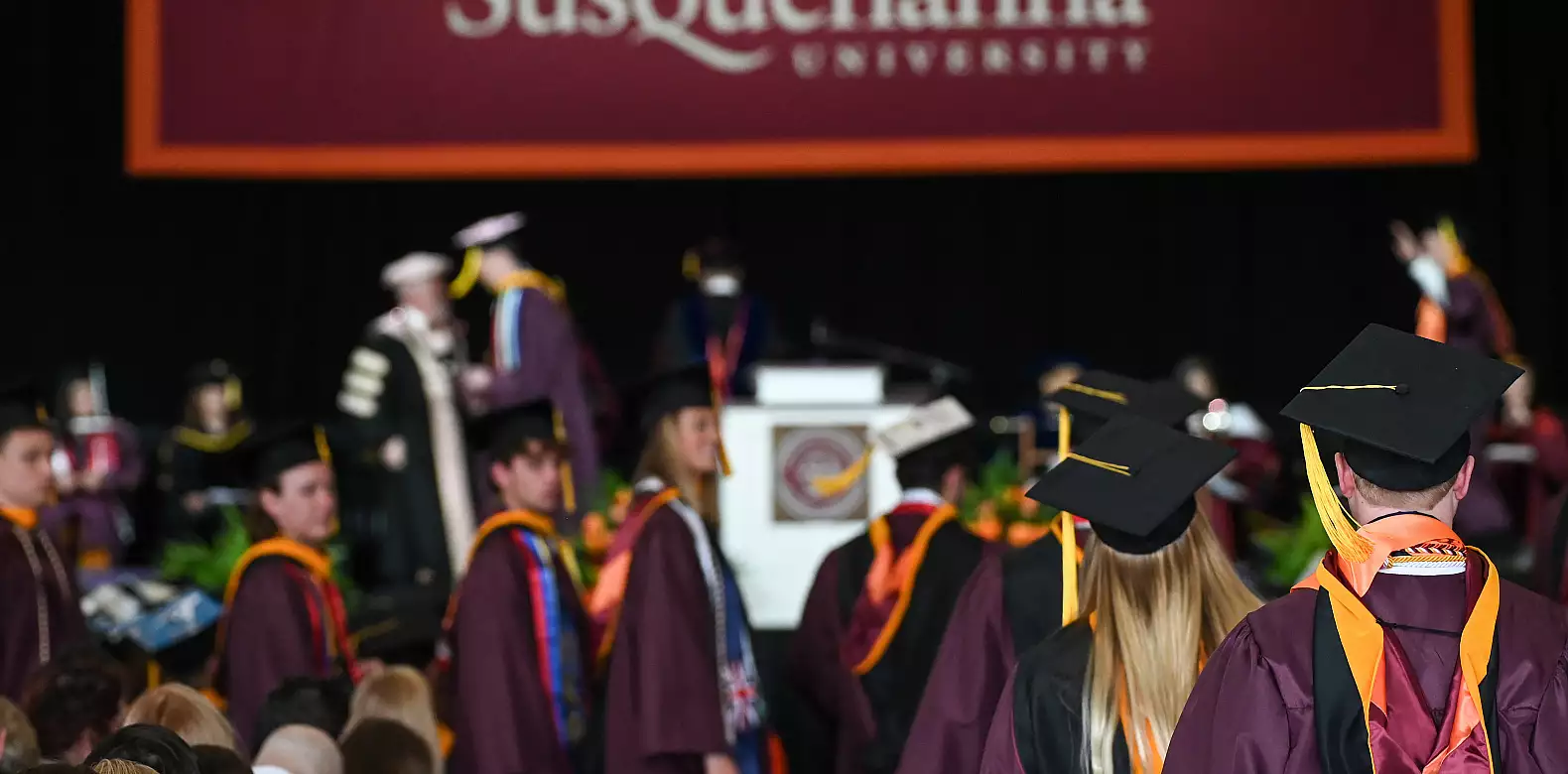Susquehanna University ranks among the top universities in the U.S. for career-long earnings, according to a new report from Georgetown University Center on Education and the Workforce.
Susquehanna ranks No. 509 among 4,500 colleges and universities nationwide for salary earned over the 40-year length of a career, placing it among the top 11%. The university ranks No. 16 among private, liberal arts universities in Pennsylvania on the same metric, which includes the University of Pennsylvania, Carnegie Mellon, Lehigh and Duquesne universities.
Specifically, the report found that by the end of their careers, Susquehanna graduates could expect to earn an additional $1 million in today’s dollars than if they had not gone to college.
“There are few, if any, investments that have a greater impact on our nation, our economy, and our fellow citizens than that of a college education,” said Susquehanna University President Jonathan Green. “At a time when the value of such an investment is being assailed as a shaky bet, the earnings gap between college graduates and nongraduates is at an all-time high. Not only do college graduates earn significantly more over their lifetimes than those who do not complete college degrees, a Susquehanna education prepares its students for productive lives of achievement, leadership and service in a diverse and interdependent world.”
Using new data from the College Scorecard, Georgetown used the same methodology in its 2019 “A First Try at ROI” report to rank 4,500 colleges and universities by return on investment. Private colleges that primarily offer bachelor’s degrees lead the list of institutions that provide the highest returns on investment 40 years after enrollment, just as they have in earlier versions of the College Scorecard.
To measure ROI, the study uses net present value, which estimates how future earnings are valued in the present. The measure, calculated using data from the College Scorecard, a website run by the federal government, essentially weighs the cost of paying for college against what students could potentially earn later.




